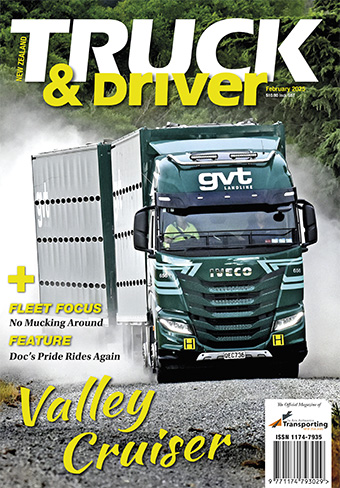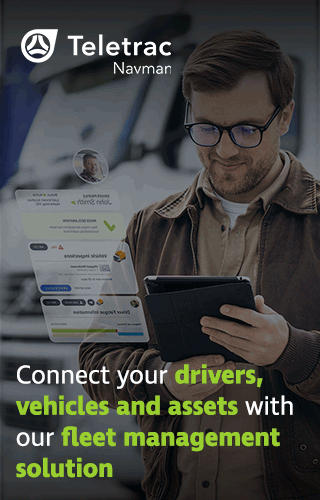Ia Ara Aotearoa Transporting New Zealand News


The challenge of getting to net zero
Road Transport Form chief executive Nick Leggett recently attended the Sustainable Business Council's Net Zero Transport Workshop, to explore how freight transport will achieve net zero emissions by 2050.
"The big take away for me was just how much pressure is about to come on the transport sector to reduce its carbon footprint," says Leggett.
"Without a doubt, government and business leaders see transport as the low-hanging fruit in the push to reduce emissions."
The overall transport sector currently contributes around 20% of New Zealand's emissions, while the heavy transport sector (road, rail and shipping) makes up 24% of that. This means that approximately 5% of NZ's overall emissions are from heavy transport.
NZ, like many other nations, is committed to achieving the goal of limiting global warming to less than 1.5 degrees, which means reducing emissions to net zero by 2050. Net zero is the balance between carbon emissions and carbon sequestration.
...Road Transport Form chief executive Nick Leggett recently attended the Sustainable Business Council's Net Zero Transport Workshop, to explore how freight transport will achieve net zero emissions by 2050.
"The big take away for me was just how much pressure is about to come on the transport sector to reduce its carbon footprint," says Leggett.
"Without a doubt, government and business leaders see transport as the low-hanging fruit in the push to reduce emissions."
The overall transport sector currently contributes around 20% of New Zealand's emissions, while the heavy transport sector (road, rail and shipping) makes up 24% of that. This means that approximately 5% of NZ's overall emissions are from heavy transport.
NZ, like many other nations, is committed to achieving the goal of limiting global warming to less than 1.5 degrees, which means reducing emissions to net zero by 2050. Net zero is the balance between carbon emissions and carbon sequestration.
While there is no specific emissions target for the heavy transport sector yet, the workshop worked off a scenario whereby NZ's heavy transport emissions, currently around 3.8 million tonnes of CO₂e, would be reduced to 1.7 million tonnes of CO₂e by 2030…and zero tonnes by 2050.
Leggett makes the point that 2050, "and even 2030, may seem like a long way off – but industries like ours that include longterm capital expenditure on vehicles and equipment, have to be thinking about how to reduce their emissions now.
"It was therefore encouraging to see nearly 50 transport industry leaders from organisations such as Fonterra, NZ Post and Ports of Auckland attend the Net Zero Workshop and engage on practical ideas to assist the sector to achieve these goals."
A number of different ideas were discussed, but the stated goal of the workshop was to focus on one solution and put it into practice.
It was decided that the most practical thing the sector could do was develop a shared financing model for research into the viability of low emissions solutions that could be piloted and used by the industry.
"It was considered that shared financing would help spread the necessary capital investment while providing the most inclusive model," says Leggett.
"This would help smaller industry players, who would otherwise not have the resources to participate, to be involved in the research and development of solutions right from the beginning.
"RTF is also encouraged that many businesses involved in road transport are already stepping up and making commitments to reduce their emissions. Some are doing it privately or alongside their customers, while others – like the signatories to the Climate Leaders Coalition – have made public commitments."
The Climate Leaders Coalition comprises over 100 of NZ's most prominent businesses, that together account for over 60% of NZ's emissions. Members of the Coalition include significant freight and logistics-associated businesses such as Fonterra, Z, Freightways, TIL Logistics, Toll and Waste Management.
Each member of the Coalition publicly supports NZ's international climate commitments, as well as carbon budgets enshrined in law. Coalition members are also obligated to measure their greenhouse gas emissions and publicly report on them, set a public emissions reduction target consistent with the national target, work with suppliers to reduce emissions and work towards the transition to a low emissions economy.
As well as being a member of the Climate Leaders Coalition, TIL Logistics has recently partnered with New Plymouth-based Hiringa Energy to develop hydrogen fuel cell technology for its transport vehicle fleet.
TIL and Hiringa hope to begin their first hydrogen vehicle trials in 2020 and will roll out the technology across their fleet and put the necessary refuelling infrastructure in place after that.
Hiringa and TIL are by no means alone in the hydrogen space either: Hyundai, Toyota and Honda have light hydrogen vehicles on the market overseas and late last year Nikola rolled out the third version of its hydrogen-powered electric tractor unit and is soon to begin testing.
Says Leggett: "It will be interesting to see the results of the trials, both here with Hiringa and overseas, as to whether hydrogen fuel cells and the complex infrastructure that comes along with that technology can displace the battery-based electric motor as the clean alternative for heavy transport.
"While the heavy vehicle sector is generally a wee way behind light vehicles when it comes to the uptake of new powertrain technologies, due to the added complexities involved, there is no question as to the broad momentum of change taking place," he adds.
"The fact that Tesla cars outsold BMW, Lexus, and Mercedes-Benz in the United States in the last quarter of 2018 illustrates just how swiftly the overall vehicle market is changing.
"Without question the freight and logistics sector will face increasing pressure from both government and our customers to reduce our emissions. However, it is heartening to know that a number of NZ transport businesses are already confronting the problem," says Leggett.
"I can only encourage other operators to do the same, as the sooner we plan and prepare for net zero the less painful the transition to it will be."




 + EQUIPMENT GUIDE - FREE
+ EQUIPMENT GUIDE - FREE
